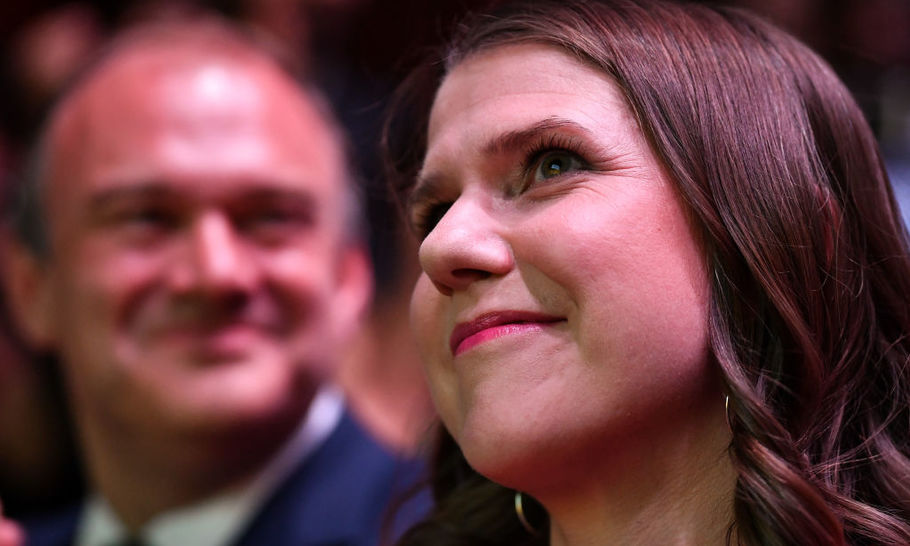Fresh, young Jo Swinson has the opportunity to revive British liberalism - will she embrace it?

(Photo by Jeff J Mitchell/Getty Images)
Two leadership elections of two major political parties and not a surprise between them. Both Jo Swinson and Boris Johnson won their respective contests comfortably, each receiving over 60% of the votes from party members. Team Boris will no doubt be riding high after their man’s thumping victory, winning 66% of the vote. However, the Lib Dems may actually have found themselves the perfect foil to the man heading to Number 10.
Swinson, at 39, is the youngest person and the first woman to ever lead her party. She has already served in Government, becoming a business minister in the coalition, and has been unequivocal about wanting the top job. She told party colleagues assembled for the announcement yesterday that she stood before them “as a candidate for Prime Minister”. She was similarly clear about her ambitions when I interviewed her during the campaign.
Swinson’s acceptance speech Monday laid out her stall – stop Brexit and fight the growing extremism and polarisation of politics. It is a message a lot of people could get behind and, ignoring her nerves yesterday, she has the ability to deliver it.
Full of energy, Swinson took up the fight straight away this morning, touring the studios and turning up to the Conservative leadership result announcement in Westminster to speak to the media. Sad to say, but the truth is that just by virtue of being young and female Swinson stands out from the septuagenarian socialist and Tory toff she is now competing with. Her defeated opponent, Oxford graduate Sir Ed Davey, for all he has to recommend him, would not have been able to offer such a contrast. Swinson should be able to cut through.
Hovering consistently at around 20% in the polls, buoyed by the defection of Chuka Umunna (with potentially more to come) and expected to win the Brecon and Radnorshire by-election next week, the Lib Dems have the chance to be heard for the first time in a number of years. But there are challenges ahead. What will the party campaign for if Brexit does happen on 31st October, as promised by Johnson? Rejoin is a much harder argument to make than Remain, and the public are likely to what to be done with Brexit and have politicians focus on other things. Climate change is a core issue for the party, but is perhaps too esoteric to excite much of the electorate. Similar is true of equality for women and minorities, something Swinson has campaigned on for years – she was key to the introduction of shared parental leave rules, and wrote a book on feminism after she lost her seat in 2015.
In order to counter Boris’s bluster, the Lib Dems will have to offer something highly tangible to voters. Swinson was right to talk about a breaking down of the social contract in her acceptance speech. She would do well to build on that theme in the future. The Glasgow girl can do so with far more credibility than the Eton-educated Johnson. She went for substance in that opening address as leader, while Johnson opted to continue in the vacuous manner he deployed during his campaign. He said nothing at all. Someone like Swinson can hold him to account for doing this when the opportunity arises, which it inevitably will.
Jeremy Corbyn’s Labour have, unsurprisingly, tried to focus on Swinson’s record in government since her victory was announced. I suspect that in the current political climate such messaging will only appeal to a dedicated following. Labour’s failure to act definitively on Brexit and anti-Semitism has infuriated a significant chunk of its 2015 electoral coalition and will continue to dog the party for a while yet.
It all means there is much more focus on the Lib Dem leader than there normally would be. Jo Swinson has been handed a huge opportunity by both political circumstance and her predecessor, but the real hard work to reinvigorate British liberalism starts now.





